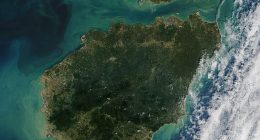
The 52-year-old Australian has been indicted on 17 charges of espionage and one charge of computer misuse over his website’s publication of classified US documents almost 15 years ago.
American prosecutors allege Assange encouraged and helped US Army intelligence analyst Chelsea Manning steal diplomatic cables and military files that WikiLeaks later published, putting lives at risk.
Lawyer Clair Dobbin told the High Court on Wednesday that Assange damaged US security and intelligence services and “created a grave and imminent risk” by releasing the hundreds of thousands of documents — risks that could harm and lead to the arbitrary detention of innocent people, many of whom lived in war zones or under repressive regimes.
Dobbin added that in encouraging Manning and others to hack into government computers and steal from them, Assange was “going a very considerable way beyond” a journalist gathering information.
Assange was “not someone who has just set up an online box to which people can provide classified information,” she said.
“The allegations are that he sought to encourage theft and hacking that would benefit WikiLeaks.”

Assange’s supporters maintain he is a secrecy-busting journalist who exposed US military wrongdoing in Iraq and Afghanistan. They argue that the prosecution is politically motivated and he won’t get a fair trial in the US.
Assange’s lawyers argued on the first day of the hearing on Tuesday that American authorities are seeking to punish Assange for WikiLeaks’ “exposure of criminality on the part of the US government on an unprecedented scale”, including torture and killings.
Lawyer Edward Fitzgerald said Assange may “suffer a flagrant denial of justice” if he is sent to the US.
Dobbin rejected claims that the charges are a “tool of oppression” to punish Assange for his political opinions.

She said the prosecution is based on law and evidence, and has remained consistent despite the changes of government in the US during the course of the legal battle.
She added that it was not necessary for WikiLeaks to publish sensitive material, including names of those who could be endangered.
Media outlets that went through the process of redacting the documents before publishing them are not being prosecuted, she said.
Assange’s lawyers say he could face up to 175 years in prison if convicted, though American authorities have said the sentence is likely to be much shorter.
Assange was absent from court on Wednesday and Tuesday because he is unwell, WikiLeaks said.

Stella Assange said her husband was too unwell to attend but wouldn’t be so sick if he wasn’t in Belmarsh Prison.
“It is unimaginable that this country will deliver Julian into the hands of the country and of the people who plotted his assassination,” she said on the way into court on Wednesday morning.
“Julian is very appreciative of all the concern by the press and the community support.
“Julian is a political prisoner and he has to be released.”
Assange’s family and supporters say his physical and mental health have suffered during more than a decade of legal battles, including seven years in self-exile in the Ecuadorian Embassy in London and the last five years in the high-security prison on the outskirts of the British capital.

His wife, who married the WikiLeaks founder in prison in 2022 — said last week that his health has deteriorated during years of confinement and “if he’s extradited, he will die”.
Supporters holding “Free Julian Assange” signs and chanting “there is only one decision — no extradition” held a noisy protest outside the neo-Gothic High Court building for a second day on Wednesday.
If judges Victoria Sharp and Jeremy Johnson rule against Assange, he can ask the European Court of Human Rights to block his extradition — though supporters worry he could be put on a plane to the US before that happens, because the British government has already signed an extradition order.
The two justices could deliver a verdict at the end of the hearing on Wednesday, but they’re more likely to take several weeks to consider their decision.






